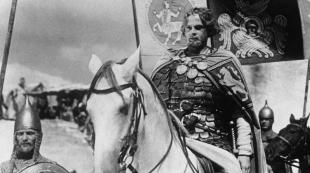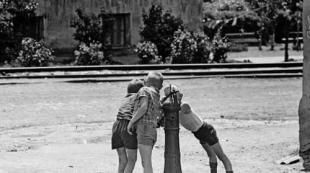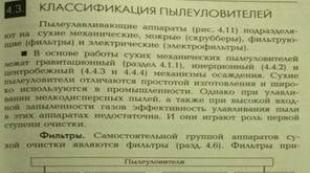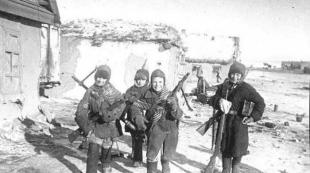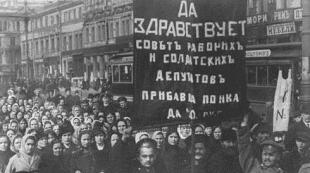Izyaslav Yaroslavich domestic and foreign policy. Prince Izyaslav Yaroslavich. The beginning of the reign in Kiev
Izyaslav (baptized Demetrius) was born in 1024. Years of government: 1054-1078
His father is the Grand Duke of Kiev Yaroslav the Wise, his mother is the Swedish princess Ingegerda (baptized Irina). During the life of his father, Izyaslav received the Turov land, and after the death of his elder brother Vladimir in 1052 he became the prince of Novgorod.
In 1054, according to the will of his father, Izyaslav received the great Kiev reign, and his son Mstislav - Novgorod.
The reign of Izyaslav Yaroslavich took place in alliance with the brothers - the Chernigov prince Svyatoslav and the Pereyaslavl prince Vsevolod. They revised the "Russkaya Pravda" and adopted the "Pravda of the Yaroslavichs", established separate metropolises in the principalities. Historians have called their system the Yaroslavich triumvirate. Also brothers together in 1055 and 1060. defeated the Torks.
In 1064, Prince Izyaslav Yaroslavich repelled the Polovtsian invasion. In 1067 the Kiev prince and his brothers ravaged the city of Minsk in revenge for the robbery of Novgorod by Vseslav Bryachislavich, Prince of Polotsk. And in the same year, during the peace negotiations, Vseslav was captured and imprisoned in a Kiev prison.
In 1068 the Yaroslavich brothers were defeated by the Polovtsy on the river. Alte. The refusal of Izyaslav I Yaroslavich to issue weapons to the Kievites for protection from the Polovtsians caused a popular uprising against him. The Kievans freed Vseslav Bryachislavich and proclaimed him their prince, and Izyaslav Yaroslavich was forced to flee to Poland to ask for help from his nephew, Prince Boleslav II.
In 1069 Izyaslav I Yaroslavich returned to Kiev with the Polish army and regained the throne, inflicting reprisals against the perpetrators of his exile.
In 1073, the younger brothers, Svyatoslav and Vsevolod, entered into a conspiracy against Kiev prince Izyaslav, as a result of which in 1075 Izyaslav fled to Poland again, and Svyatoslav of Chernigov seized the Kiev throne.
But Izyaslav I Yaroslavich was also expelled from Poland, since the Polish prince entered into an alliance with Svyatoslav and Vsevolod. Then Izyaslav went to Germany for help to the Emperor Henry IV, but there he was refused.
Izyaslav's wanderings ended in 1076, when Svyatoslav Yaroslavich suddenly died, and he again regained power. And Vsevolod, having made peace with his brother, retired to Chernigov in 1077.
In 1078, their nephews, the Tmutarakan prince Oleg Svyatoslavich and the outcast prince Boris Vyacheslavich, rebelled against Izyaslav and Vsevolod Yaroslavich. In the battle on the Nezhatenaya Niva for the Chernigov principality, Oleg fled, Boris was killed. The Yaroslavichs won, but Izyaslav died from the wound received. The death of Izyaslav and Boris is mentioned in "The Lay of Igor's Host."
Izyaslav I Yaroslavich was buried in the Cathedral of St. Sophia in Kiev.
During the reign of Izyaslav, the Dimitrovsky monastery was built in Kiev, land was allocated for the Kiev-Pechersky monastery.
Prince Izyaslav was married to the daughter of the Polish king Mieszko II Lambert, Gertrude (baptized Elena).
Children: Yaropolk (prince of Volynsky and Turovsky), Svyatopolk II Izyaslavich (prince of Polotsk, Novgorod, Turovsky, and then the great Kiev), Mstislav (prince of Novgorod).
Izyaslav was the eldest son of Yaroslav I Vladimirovich, Grand Duke of Kiev, and the Swedish princess Ingigerda, named Irina after baptism. Izyaslav was born in 1024. After the death of his father in 1054, he became the heir to the Kiev principality and then divided the lands between his brothers Svyatoslav II, Vsevolod I and Igor, according to the will of his father. The first years of Izyaslav's reign were not particularly tense, although he nevertheless undertook several campaigns against external enemies. And inside Russia there were no internecine wars for ten years.
Izyaslav's struggle for power
Starting in 1067, the idyll ended. The Troubles were initiated by the Polotsk prince Vseslav, who believed that by law and by kinship he had the right to reign in Kiev, since he was the great-grandson of the Grand Duke of Kiev Vladimir. Vseslav provocatively attacked Novgorod, took it and plundered it, although Novgorod was in the legal possession of Izyaslav.
Izyaslav called the brothers for help, and together they went to war against Vseslav. In the battle with him on the Neman, the brothers won, but Vseslav managed to escape. Izyaslav offered to negotiate with him, inviting him to his tent. But as soon as the delegation (Vseslav and his two sons) appeared in the tent, they were immediately arrested and sent to prison.
Izyaslav's conflict with the squad. Escape to Poland
In the next raid of the Polovtsians (1068) Izyaslav with his brothers was defeated on the river. Alte. Izyaslav brought the remnants of the army back to Kiev. But his soldiers, grieving over defeat, in a very rude manner began to demand horses and weapons from the prince in order to go to fight again. Outraged by the insolent tone of the ultimatum, Izyaslav refused to fulfill the demand of his squad. This provoked a mutiny in its ranks, as a result of which the rebels released Vseslav from prison and even declared him their sovereign. Izyaslav had to quickly leave Kiev. In Poland, where he went, he was well received, because Boleslav II, a relative of Izyaslav, was king there.
Return of Izyaslav to Russia
Izyaslav, in alliance with Boleslav and his army, returned to his homeland (1069). Vseslav allowed them to reach Belgorod without hindrance, and then with his army went to meet them. But he did not start the battle, either fearing the superior forces of the Polish army, or doubting the loyalty of the Kievites. He simply abandoned his squad and returned to his Polotsk, and the Kievites abandoned by the "sovereign" were forced to return to their home in Kiev. Through the mediation of the brothers Izyaslav - Svyatoslav and Vsevolod - they admitted their guilt and asked the Grand Duke to return to reign in Kiev. So Izyaslav regained his power in the capital.
Izyaslav's revenge. New escape
Wanting to take revenge on Vseslav, Izyaslav captured Polotsk (1071). In response, Vseslav made an attempt to take Novgorod, but to no avail. As a result of several clashes, Vseslav still managed to regain Polotsk. While the Russian princes were sorting out their relations, the Polovtsians ravaged villages along the banks of the Desna. The Chernigov prince Svyatoslav convinced Vsevolod that their brother Izyaslav had gone over to the side of Vseslav of Polotsk and was preparing a conspiracy against the brothers. Vsevolod and Svyatoslav eventually united against Izyaslav.
Izyaslav fled to Poland again (1073). But Boleslav this time was not in a hurry with help. Then Izyaslav turned to Emperor Henry IV (Germany). He made an attempt to help. He sent his messenger to Kiev with an ultimatum: if you do not return power to the legitimate prince, we will start a war with you. Svyatoslav, who was in Kiev, went to bribe the ambassador and emperor Henry. Having received generous gifts, Henry did not send his troops to Russia. Izyaslav then turned to the Pope for intercession. But the intercession of Pope Gregory the Seventh was not needed.
Again in Kiev
In 1076, Izyaslav's brother Svyatoslav died, who had once overthrown him from the Kiev throne. Izyaslav returned to Kiev, and in 1077 he made peace with his brother Vsevolod, making peace with him. But peace in the country did not last long. Izyaslav's nephews, who were also seeking power, joined the internecine wars. 1078 brought the following events: Prince. Oleg Svyatoslavovich and Boris Vyacheslavovich hired the Polovtsians, came to Chernigov and defeated the troops of Vsevolod. Vsevolod fled to Izyaslav in Kiev. He immediately went to Chernigov. The battle was at the walls of the city. In this battle, Prince Izyaslav died.
Izyaslav's trace in history
As a statesman, Izyaslav supplemented Russkaya Pravda, a collection of civil laws introduced by his father Yaroslav. These additions are called "Pravda Izyaslav", according to which the death penalty was prohibited in Russia. The founding of the famous and to this day Kiev-Pechersky Monastery is also the merit of Izyaslav.
Izyaslav Yaroslavich, the biography of the Grand Duke of Kiev was marked by serious changes in the laws of the state.
Izyaslav did a lot for the development of culture, he left the built monasteries as a memory.
He is tall, with a handsome face, and a prince with a corresponding character. A gentle man, without cunning, did not like deceivers and constantly stood for the truth.
Years of life
Izyaslav, baptized by Dmitry, was born in 1020 in Nezhatina Niva to Yaroslav the Wise and Irina, the Swedish princess Ingigerda.
In addition, the family had an older brother Vladimir and 5 younger brothers and a sister. The prince of Kiev died after being seriously wounded in the battle on October 3, 1078.
Years of reign
While his father lived, Izyaslav ruled in Turov in Polesie. In 1052, when the elder brother died, Novgorod was also inherited. With the death of his father in 1054, according to his will, he began to reign in the Great Kiev principality. The rest of the land, as requested by his father, was divided between the brothers.
For 10 years, the government was calm, with the exception of two victorious wars with Latvians and Golyads. There were no strife and civil strife inside the country. Izyaslav Yaroslavich ruled together with Svyatoslav and Vsevolod. This system was called the Yaroslavich Triumvirate.
The brothers revised "Russian Truth" by Yaroslav the Wise and adopted "Pravda Yaroslavichi". The principalities became separate metropolises. Interesting. The law of Russian Pravda "Damage to the beard" states: For damage to the beard, another person is charged a fine of 12 hryvnias.
The triumvirate collapsed after the defeat of the Polovtsy in 1068. The retreating soldiers of Izyaslav demanded to provide them with weapons and horses, but were refused. An uprising began, during which the prince fled under the protection of the Polish king. Then the rebels freed the arrested Vseslav of Polotsk, the prince's nephew, and put him on the throne. After 7 months, Izyaslav returns to Kiev.
1071-1073 biennium were held to clarify the relationship between the princes of Kiev and Polotsk. And at this time Russian villages were ruined by the Polovtsians. Vsevolod, convinced by his brother that Izyaslav was a traitor along with Vseslav, conspired. In 1075 Izyaslav had to flee to the Polish principality again.
The Polish prince, who had entered into an alliance with the brothers, expelled Izyaslav. In Germany, assistance was also refused. He even tried to ask the Pope to intercede in exchange for accepting the Latin faith and the pope's secular power. Izyaslav Yaroslavich was able to return to his homeland after the death of Svyatoslav and reconciliation with Vladislav in 1076.
In July 1077, the prince again ascended the throne of Kiev. 1078 - the beginning of a new civil strife, this time the nephews Oleg Svyatoslavich and Boris Vyacheslavich. In the decisive battle on the r. Sozhitsa, Izyaslav was mortally wounded. This is how the Grand Duke of Kiev, Izyaslav Yaroslavich, finished his rule.
Domestic policy
The rule of Izyaslav Yaroslavich within the state consisted of:
- in the struggle with brothers and nephew for power in Kiev and strengthening of the princely power;
- v further development laws in Russia for the purpose of restoring order - the abolition of blood feud and replacement with a fine; abolition of the death penalty;
- in the development of cultural heritage: the Dimitrovsky Cathedral was erected and the Kiev-Pechora Monastery was built.
Foreign policy
Foreign policy is marked by the struggle with the Polovtsy and the defense of Russian territory from outside enemies.
- 1055, 1060 - joint defeat of the torques.
- 1058g. - the success of the campaign against the Baltic tribe Golyad.
- In 1061, the Polovtsy attacked Russia for the first time.
- 1064 Izyaslav repulsed the attack in the battle on Snov.
- 1968 - the Yaroslavich brothers lost the battle.
Wife and kids
Izyaslav's wife - Gertrude (baptized Elena), daughter of the King of Poland, Mieszko II Lambert. Three sons and one daughter were born. The eldest son, who was born in 1043, was named Yaropolk and was christened Peter. Subsequently, Prince Volynsky and Turovsky. It is believed that the Vsevolodkovich family came from Yaropolk.
The second son was named Svyatopolk, at baptism he was given the name Michael. Born in 1050, ruled in Polotsk, Novgorod, Turov and Kiev. The youngest, born in 1054, was called Mstislav. He ruled in the principalities of Novnorod and Polotsk. Daughter Eupraxia, born in 1059, was later married to the Polish prince Meshko, son of Boleslav.
Doom
In 1078, internecine war resumed, marked by the confrontation between the brothers and nephews of Oleg Svyatoslavovich, who lay claim to Chernigov and Boris Vyacheslavovich, an outcast prince. Yaroslavich with a large army went to Chernigov. Nezhatinaya Niva became the battlefield. Izyaslav was defended by the infantry, but the prince received a fatal blow from the spear of a mounted enemy. The brothers won this battle, but already left alone. Oleg was not caught, he fled to Tmutarakan, and Boris was killed. Izyaslav Yaroslavovich was buried in Kiev, in the Cathedral of St. Sophia.
Outcomes
The main merit of Izyaslav Yaroslavich is the revision, together with his brothers, of the code of laws in the Russian state called "The Truth of the Yaroslavichs". The laws spoke of the prohibition of the death penalty and blood feud. Thanks to Prince Izyaslav, land was allocated and the Kiev-Pechersky Monastery was built. In addition, the Dimitrovsky monastery with a cathedral was founded.
Dealing with internecine wars, the prince managed to repel the invasions of external enemies: Polovtsy, Torks, Baltic. The memory of Izyaslav is not marked by monuments or works of art. The name of the prince is found only in the "Tales of Bygone Years", in foreign chronological tables, and in the historical records of researchers.
Izyaslav Yaroslavich(baptized Demetrius 1024 - October 3, 1078, Nezhatina Niva, near Chernigov) - Prince of Turov (up to 1054), Prince of Novgorod (1052-1054), Grand Duke of Kiev (1054-1068, 1069-1073 and 1077-1078).
Was born in 1024. His father was, and his mother was Yaroslav's wife - Irina (Swedish princess Ingigerda), he was their second son after Vladimir.
Received a table from my father in Turov. After the death in 1052 of the elder brother of the Novgorod prince Vladimir, he imprisoned his son Mstislav in Novgorod and, according to the then dynastic rules, became the heir to the Kiev table (although Vladimir left his son). On February 20, 1054, after the death of his father, he became the Grand Duke of Kiev.
From V.N. Tatishchev "Russian History".

9. Izyaslav I Demetrius, son of Yaroslav, was born in 1025, the grand duke after his father; expelled twice, the first from Kiev in 1067, but soon sat down again; in the second he was exiled by his brothers in 1072, sat down after the death of Svyatoslav in 1077; killed in a battle with Chernigov in 1078. It is not known who the spouse was, only died in 1107. His children: Svyatopolk Mikhail, Grand Duke; Yaropolk of Vladimir, killed by a slave in 1087; Mstislav of Polotsk, died in 1072; daughter Praskevia, or Praxedis, after Margrave Udon in 1072, then after Cesar Hendrik IV in 1088, died in 1109.
From “The Tale of Bygone Years”.
The beginning of the reign of Izyaslav in Kiev.
Arriving, Izyaslav sat on the table in Kiev, Svyatoslav in Chernigov, Vsevolod in Pereyaslavl, Igor in Vladimir, Vyacheslav in Smolensk. In the same year, in the winter, Vsevolod went to the Torks to the Warrior and defeated the Torks. In the same year, Bolush came with the Polovtsians, and Vsevolod made peace with them, and the Polovtsians returned back where they came from.
In year 6565 (1057)
.
Vyacheslav, the son of Yaroslav, died in Smolensk, and Igor was imprisoned in Smolensk, taking him out of Vladimir.
In year 6566 (1058)
.
Izyaslav Golyad won.
bean- Baltic tribe, inhabited the basin of the river. Protva between the lands of Vyatichi and Krivichi; assimilated by the Eastern Slavs.
In year 6567 (1059)
.
Izyaslav, Svyatoslav and Vsevolod freed their uncle Sudislav from the porch, where he had been sitting for 24 years, taking the kiss of the cross from him; and he became a black man.
In year 6568 (1060)
.
Igor, the son of Yaroslav, has passed away. In the same year, Izyaslav, and Svyatoslav, and Vsevolod, and Vseslav gathered countless soldiers and went on a march to the torques, on horses and in boats, many innumerable. Hearing about this, the Torks were frightened and fled, and have not returned until now - they died on the run. Persecuted by God's wrath, some from cold, some from hunger, others from pestilence and God's judgment. This is how God delivered the Christians from the filthy.
In year 6569 (1061)
.
For the first time the Polovtsians came to the Russian land by war; Vsevolod came out against them in the month of February on the 2nd day. And in the battle they defeated Vsevolod and, having conquered the land, left. That was the first evil from filthy and godless enemies. The prince was looking for them.
In year 6571 (1063)
.
Sudislav, brother of Yaroslav, reposed, and he was buried in the church of St. George. In the same year, in Novgorod, Volkhov flowed in the opposite direction for 5 days. This sign was unkind, for in the fourth year Vseslav burned the city.
In year 6572 (1064)
.
Rostislav, the son of Vladimirov, the grandson of the Yaroslavs, fled to Tmutarakan, and Leo and Vyshata, the son of Ostromir, the governor of Novgorod, fled with him. And when he came, he drove Gleb out of Tmutarakan, and he sat down in his place.
In year 6573 (1065)
.
Svyatoslav went to Rostislav to Tmutarakan. Rostislav retreated from the city - not because he was afraid of Svyatoslav, but not wanting to raise weapons against his uncle. Svyatoslav, having come to Tmutarakan, again planted his son Gleb and returned back. Rostislav, having come, again drove Gleb out, and Gleb came to his father. Rostislav sat down in Tmutarakan. In the same year, Vseslav began the war.
In year 6574 (1066)
.
When Rostislav was in Tmutarakan and took tribute from the Kasogs and other peoples, the Greeks were so afraid of this that they sent a cotopan to him with deception. When he came to Rostislav, he gained confidence in him, and Rostislav honored him. Once, when Rostislav was feasting with his retinue, the kotopan said: "Prince, I want to drink to you." The same one answered: "Drink." He drank half, and gave half to the prince to drink, dipping his finger into the cup; and under the nail he had deadly poison, and gave it to the prince, dooming him to death no later than the seventh day. He drank, but the cotopan, returning to Korsun, told there that it was on this day that Rostislav would die, as it happened. This Cotopan was stoned by the Korsun people. Rostislav was a valiant, warlike husband, handsomely built and handsome in face, and merciful to the poor. And he died in February on the 3rd day and was laid there in the church of the Holy Mother of God.
In year 6575 (1067)
.
Vseslav, the son of Bryachislav, raised the army in Polotsk and occupied Novgorod. Three Yaroslavichs, Izyaslav, Svyatoslav, Vsevolod, having gathered soldiers, went to Vseslav in a severe frost. And they approached Minsk, and the Minskers shut themselves up in the city. These brothers took Minsk and killed all the husbands, and captured their wives and children and went to Nemiga, and Vseslav went against them. And the opponents met on Nemiga in the month of March on the 3rd day; and the snow was great, and they went against each other. And there was a cruel slaughter, and many fell in it, and overpowered Izyaslav, Svyatoslav, Vsevolod, but Vseslav fled. Then on the 10th day of July, Izyaslav, Svyatoslav and Vsevolod, kissing the cross of the honest Vseslav, told him: "Come to us, we will not do you harm." He, hoping for their kissing of the cross, moved to them in a boat across the Dnieper. When Izyaslav was the first to enter the tent, they seized Vseslav here, on Rshi near Smolensk by crossing the kiss of the cross. Izyaslav, having brought Vseslav to Kiev, put him in prison with his two sons.
In year 6576 (1068)
.
Foreigners came to the Russian land, there are many Polovtsians. Izyaslav, and Svyatoslav, and Vsevolod went against them to Alta. And at night they went against each other. God brought the filthy people on us for our sins, and the Russian princes fled, and the Polovtsians won ...
But let's get back to our story. When Izyaslav and Vsevolod fled to Kiev, and Svyatoslav - to Chernigov, the Kievites ran to Kiev, and gathered the veche at the auction, and sent to the prince to say: “Behold, the Polovtsians have scattered all over the earth, give the prince, weapons and horses, and we will fight them again. " Izyaslav did not listen to that. And people began to grumble against the governor Kosnyachka; went up the mountain from the veche, and came to the Kosnyachkov court, and, not finding him, stood at the Bryachislav court, and said: "Let's go free our squad from prison." And they were divided in two: half of them went to the dungeon, and half of them went over the bridge, and these came to the prince's court. Izyaslav at this time in the vestibule held advice with his retinue, and those who stood below argued with the prince. When the prince was looking out of the window, and the squad was standing near him, Tuky, Chudin's brother, said to Izyaslav: “You see, prince, the people have made a noise; let's go, let them keep watch over Vseslav. " And while he was saying this, the other half of the people came from the dungeon, opening it. And the squad said to the prince: “An evil has been done; send to Vseslav, let them, having called him to the window by deception, pierce him with a sword. " And the prince did not listen to that. The people screamed and went to Vseslav's dungeon. Izyaslav, seeing this, ran with Vsevolod from the courtyard, but the people freed Vseslav from the blockhouse - on the 15th day of September - and glorified him among the princely court. The princes' court was plundered - innumerable gold and silver, in coins and ingots. Izyaslav fled to Poland.
Subsequently, when the Cumans fought on the Russian land, and Svyatoslav was in Chernigov, and when the Cumans began to fight near Chernigov, Svyatoslav, having gathered a small squad, went against them to Snovsku... And the Polovtsians saw a marching regiment, and prepared to meet him. And Svyatoslav, seeing that there were many of them, said to his squad: "Let us fight, we have nowhere to go." And they whipped the horses, and Svyatoslav prevailed with three thousand, and the Polovtsians were 12 thousand; and so they were beaten, while others drowned in Snovi, and the prince was taken on the 1st day of November. And Svyatoslav returned with victory to his city.
In year 6585 (1077) . Izyaslav went with the Poles, Vsevolod went against him. Boris sat down in Chernigov in the month of May on the 4th day, and his reign was eight days, and fled to Tmutarakan to Roman. Vsevolod went against brother Izyaslav to Volhynia; and created the world, and, having come, Izyaslav sat down in Kiev, the month of July on the 15th day, while Oleg, the son of Svyatoslav, was with Vsevolod in Chernigov.
In year 6586 (1078) . Oleg, the son of Svyatoslav, fled to Tmutarakan from Vsevolod, the month of April on the 10th day. In the same year, Gleb, the son of Svyatoslav, was killed in Zavolochye. But Gleb was merciful to the poor and loved strangers, caring for the churches, fervently believing, was meek and handsome in face. His body was laid in Chernigov for the Savior, the month of July on the 23rd day. When Svyatopolk, the son of Izyaslav, was sitting in his place in Novgorod, Yaropolk was sitting in Vyshgorod, and Vladimir was sitting in Smolensk, they brought Oleg and Boris the filthy to the Russian land and went to Vsevolod with the Polovtsy. Vsevolod, however, went out against them on Sozhitsa, and the Polovtsy Rus won, and many were killed here: Ivan Zhiroslavich and Tuky, Chudin's brother, and Leo, and many others, were killed in the month of August on the 25th day. Oleg and Boris came to Chernigov, thinking that they had won, but in fact they inflicted great harm on the Russian land by shedding Christian blood, for which God will demand from them, and they will give the answer for the ruined Christian souls.
Vsevolod came to his brother Izyaslav in Kiev; greeted and sat down. Vsevolod told about everything that happened. And Izyaslav said to him: “Brother, do not grieve. Do you see how many things happened to me: did they not kick me out first and looted my property? And then, what was my fault the second time? Was I not driven out by you my brothers? Have I not wandered in foreign lands, deprived of property, without doing any harm? And now, brother, let us not grieve. If we have our lot in the Russian land, then both; if we are deprived of it, then both. I will lay down my head for you. " And having said so, he comforted Vsevolod, and commanded to gather soldiers, young and old. And Izyaslav went on a campaign with Yaropolk, their son, and Vsevolod with Vladimir, their son. And they approached Chernigov, and the Chernigovites shut themselves up in the city, but Oleg and Boris were not there. And since the Chernigovites did not open the gates, they proceeded to the city. Vladimir approached the eastern gate from Strizhena, and seized the gate, and took the outer city, and burned it down, while the people ran into the inner city. Izyaslav and Vsevolod heard that Oleg and Boris were going against them, and, ahead of them, went from the city against Oleg. And Oleg said to Boris: "We will not go against them, we cannot resist the four princes, but we will send with humility to our uncles." And Boris said to him: "Look, I am ready and will stand against everyone." He boasted greatly, not knowing that God resists the proud, but gives grace to the humble, so that the mighty might not boast in his strength. And they went to meet them, and when they were near the village on Nezhatina field, both sides stood up and the slaughter was cruel. The first killed was Boris, the son of Vyacheslav, who boasted greatly. When Izyaslav was standing among the foot soldiers, suddenly someone drove up and hit him in the shoulder with a spear from behind. So Izyaslav, the son of Yaroslav, was killed. The battle continued, and Oleg ran with a small squad, and barely escaped, escaping to Tmutarakan. Prince Izyaslav was killed in the month of October on the 3rd day. And they took his body, brought it in a boat and set it up against Gorodets, and the whole city of Kiev went out to meet him, and, laying the body on a sleigh, they took him away; and the priests and the monks carried him with chants to the city. And it was impossible to hear the singing because of the great cry and cry, for the whole city of Kiev was crying for him, Yaropolk followed him, crying with his retinue: “Father, my father! How long have you lived without sorrow in this world, having received many misfortunes from people and from your brothers. And so he did not die by his brother, but he laid down his head for his brother. " And, having brought it, they laid his body in the church of the Holy Mother of God, placing it in a marble coffin.
Izyaslav was a husband, handsome in appearance and great in body, without malice in temper, he hated lies, loving the truth. For there was no cunning in him, but he was simple in mind, did not return evil for evil. How much evil did the people of Kiev do to him: they drove him out himself, and plundered his house, and did not repay them evil for evil. If someone says to you: "He chopped the soldiers," then it was not he who did it, but his son. Finally, the brothers drove him away and he walked in a foreign land, wandering. And when he was sitting on his table again, and the defeated Vsevolod came to him, he did not say to him: “How much have you endured from you?” , put me on my table and called me the oldest of himself, then I don’t remember your former evil: you are my brother, and I will lay my head for you, ”- as it was. After all, he did not tell him: "How much evil they have done to me, and now the same has happened to you," he did not say: "This is not my business," but he took upon himself the grief of his brother, showing great love, following the words of the apostle: "Comfort the sad ones." ... Indeed, even if he has done any sin in this world, he will be forgiven him, because he laid his head for his brother, not striving either for greater possession, nor for greater wealth, but an offense for the brother. About such and such the Lord said: “Who will lay down his life for his friends” (John 15:13). Solomon said: “Brothers in trouble help one another” (Proverbs 18:19). For love is above all. Likewise, John says: “God is love; he who abides in love, abides in God, and God abides in him ”(1 John 4:16). This is how love is accomplished so that we may have that on the day of judgment, so that we in this world may be the same as he. There is no fear in love, true love rejects it, since fear is torment. “The one who fears is not perfect in love. If someone says: “I love God, but I hate my brother,” that is a lie. For he who does not love his brother whom he sees, how can he love God whom he does not see? We received this commandment from Him that he who loves God should love his brother also ”(1 John 4: 18-21). In love, after all, everything is accomplished. For love's sake and sins disappear. For the sake of love, the Lord came down to earth and crucified himself for us sinners; taking away our sins, he nailed himself to the cross, giving us his cross in order to drive them away the hatred of demons. For the sake of love, the martyrs shed their blood. For the sake of love, this prince shed his blood for his brother, fulfilling the commandment of the Lord.
Predecessor: |
Yaroslav Vladimirovich the Wise |
Successor: |
Vseslav Bryachislavich |
Predecessor: |
Vseslav Bryachislavich |
Successor: |
Svyatoslav Yaroslavich |
Predecessor: |
Vsevolod Yaroslavich |
Successor: |
Vsevolod Yaroslavich |
Prince Turovsky |
|
Predecessor: |
Neoplasm |
Successor: |
|
Prince of Novgorod |
|
Predecessor: |
Vladimir Yaroslavich |
Successor: |
Mstislav Izyaslavich |
Birth: |
1024 Novgorod |
Dynasty: |
Rurikovich |
Yaroslav Vladimirovich the Wise |
|
Ingegerda |
|
Ingegerda |
|
Yaroslavich Triumvirate
First exile
Return and doom
Marriages and children
(in baptism Demetrius, born: 1024, Novgorod - † October 3, 1078, Nezhatina Niva, near Chernigov) - Grand Duke of Kiev in 1054-1068, 1069-1073 and from 1077, Prince of Novgorod 1052-1054.
Yaroslav's son
Born in 1024 in Novgorod, where at that time his father Yaroslav the Wise was a prince, and his mother was Yaroslav's wife Irina (Swedish princess Ingegerda), he was their second son after Vladimir. Received a table from my father in Turov.
After the death in 1052 of the elder brother of the Novgorod prince Vladimir, he became a Novgorod prince and, according to the then dynastic rules, became the heir to the Kiev table (although Vladimir left his son). On February 20, 1054, after the death of his father, he became the Grand Duke of Kiev, and left his son Mstislav as prince in Novgorod.
Yaroslavich Triumvirate
Most of the reign of Izyaslav is characterized by equal participation in public administration Grand Duke and his younger brothers - Prince of Chernigov Svyatoslav and Pereyaslavl Vsevolod. The brothers together undertook a revision of the "Russian Truth" (having adopted the so-called Pravda of the Yaroslavichs), jointly made decisions on replacing the vacant princely tables, and also established separate metropolises in their principalities. Historians call this system the Yaroslavich triumvirate. Together they took part in a trek to the Torks. In 1055, the Torks raided Pereyaslavl, and were defeated, but in this clash, Russia first collided with the Polovtsy of Khan Bolush, signing a peace treaty with him on borders, which established about 50 km of a neutral strip between Russia and the Polovtsian Land. In 1057 Rus provided military assistance to Byzantium in Armenia against the Seljuk Turks. In 1058, Izyaslav conquered the lands of the Baltic tribe Golyad in the Protva river basin. There was also a campaign against the Torks in 1060 and against Vseslav the Sorcerer, Prince of Polotsk in 1067.
First exile
In 1068, Izyaslav, together with his brothers, was defeated on the Alta River and was overthrown by a popular uprising that began in Kiev. The leaders of the insurgents freed Prince Vseslav of Polotsk, who had been arrested earlier by Izyaslav, from the "porub" (a prison without doors, built around a prisoner) and elevated him to the Kiev throne. Izyaslav fled to Poland, to his nephew, Prince Boleslav II, and, using the help of the Polish troops, returned in 1069, and in front of himself sent his son Mstislav to Kiev, where he perpetrated reprisals against the instigators of the uprising, moreover, the perpetrators of the expulsion of Izyaslav, interrupted, or blinded ...
Second exile. Wanderings in Europe
However, by 1073 (and, most likely, a little earlier), the "triumvirate" of the Yaroslavichs disintegrated; the younger brothers Svyatoslav and Vsevolod entered into a conspiracy against Izyaslav, who had to make peace with his former opponent Vseslav of Polotsk. In 1073 Svyatoslav of Chernigov captured Kiev, and Izyaslav again fled to Poland, where this time he was expelled by the Polish authorities, who concluded an alliance with Svyatoslav and Vsevolod. The exiled Izyaslav went to Germany to the emperor Henry IV and demanded his help in the struggle against the brothers, entrusting him with gigantic riches; however, the emperor, whose forces were diverted by the internal struggle in Germany, did not support him either. Izyaslav sent his son, Prince of Volyn Yaropolk, to Rome in 1075, where he visited Pope Gregory VII, the future antagonist of Henry IV. The Pope confined himself to general exhortations to the Russian princes.
Return and doom
Izyaslav's wanderings were ended by the sudden death of Svyatoslav Yaroslavich on December 27, 1076; Vsevolod, who became his sole successor, reconciled with his older brother and returned the Kiev reign to him, and he himself retired to Chernigov (1077). However, the next year, a new internecine war began. Against the uncles - Izyaslav and Vsevolod - their nephews rebelled, the son of Svyatoslav, Prince of Tmutarakansky Oleg Svyatoslavich, who claimed the Chernigov table, and the outcast prince Boris Vyacheslavich. In the battle on Nezhatina Niva near Chernigov on October 3, 1078, the Yaroslavich coalition won a victory, Oleg fled, and Boris was killed, but towards the end of the battle Izyaslav also died (the enemy rider hit him in the shoulder with a spear). The battle on Nezhatina Niva and the death of Izyaslav and Boris are mentioned in the Lay of Igor's Host. Izyaslav Yaroslavich was buried in the Cathedral of St. Sophia in Kiev.
Marriages and children
It is known that Izyaslav was married to Gertrude, the daughter of the Polish king Mieszko II.
Children
Yaropolk is the prince of Volyn and Turov, it is also known that Gertrude calls Yaropolk in her prayer book (the so-called Gertrude's code) her "only son". According to A.V. Nazarenko's assumption, the Vsevolodkovichi, the rulers of the Gorodensky principality, descended from him.
Perhaps another unknown woman, possibly the wife of Izyaslav, was the mother of two of his more famous sons:
Svyatopolk (Svyatopolk II) (1050-1113) - Prince of Polotsk (1069-1071), Novgorod (1078-1088), Turov (1088-1093), Grand Duke of Kiev (1093-1113), and his descendants in the XII-XIII centuries continued to reign in the ancestral Turov.
Mstislav - Prince of Novgorod (1054-1067)
